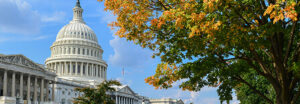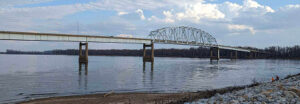These grants are used to rebuild disaster-impacted areas, and can be used to enhance flood resilience through structural improvements, green infrastructure, updated planning and codes, and community preparedness efforts.
| Supports nature-based solutions | Encourages public-private partnerships | ||
| Requires a Major Disaster Declaration | Does not require matching funds |
Application cycle: Contact your local HUD Community Planning and Development field office for application information.
Summary: Community Development Block Grant – Disaster Recovery (CDBG-DR) funding is particularly useful for small municipalities because of its broad list of eligible projects. Small municipalities needing funds to recover from a debilitating disaster may benefit from HUD Disaster Recovery grants. A subset of the Community Development Block Grant Program, these grants provide crucial seed money and address the long-term recovery and restoration of infrastructure, housing, and economic activity, including mitigation and planning activities intended to reduce or eliminate damage from future disasters. The CDBG-Mitigation program is a set-aside under the CDBG-DR Program, which is required to allocate 15 percent of disaster recovery grants for disaster mitigation activities.
Eligible applicants: States and insular areas, principal cities of Metropolitan Statistical Areas, other metropolitan cities with populations of at least 50,000, and Qualified Urban Counties with populations of at least 200,000 (excluding the population of entitled cities) that are made eligible in a Presidential Disaster Declaration.
Eligible activities:
- For CDBG-DR: There are 27 eligible activities. Flood-related activities include open space acquisition; construction, repair, replacement, or relocation of public facilities; and improvements, such as dams or levees.
- For CDBG-MIT: Examples of activities include rehabilitating stormwater and essential infrastructure, enhancing public facilities, supporting housing relocations, and offering limited public services (e.g., counseling, health). Funding can also cover disaster resilience for businesses, including hardening commercial areas and elevating or flood-proofing non-residential structures.
Funding: Varies. In response to a natural disaster, Congress appropriates funds to HUD, which then allocates funds to eligible states and municipalities based on unmet recovery needs. The City of San Marcos, Texas, received a $33 million CDBG-DR grant following significant flooding in May and October 2015 to fund public housing and housing reconstruction, infrastructure projects, planning, and administrative expenses.
Cost share: This program has no cost-share requirements.
Application process:
- For application information, contact your local HUD Community Planning and Development field office.
- HUD will notify states, municipalities, and counties if they are eligible to receive CDBG-DR grants. HUD allocates funds based on unmet recovery needs.
- Funds are subject to the availability of supplemental appropriations.


